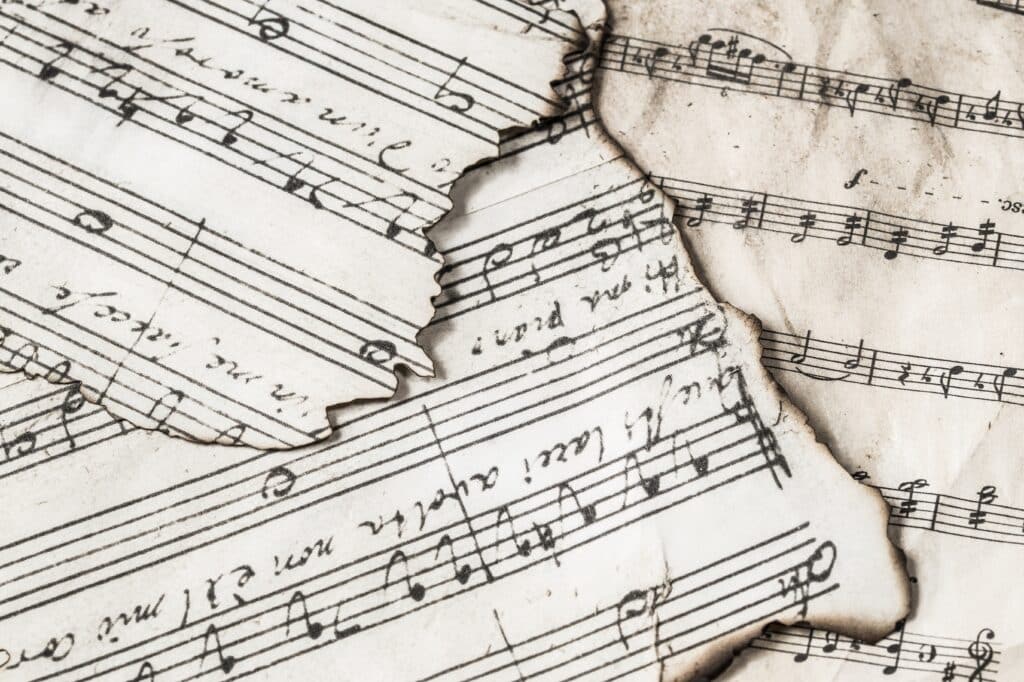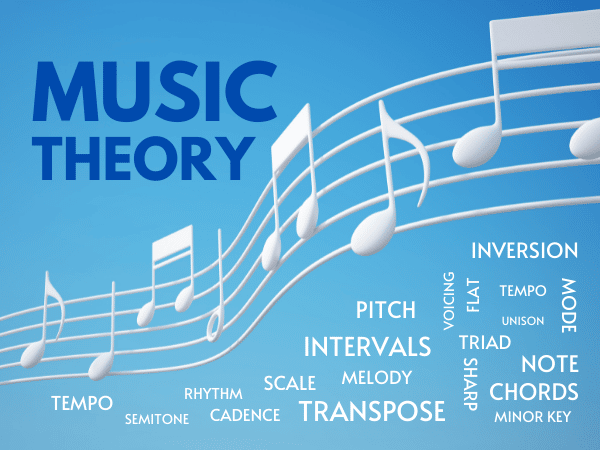Last Updated on May 26, 2023 by IDS Team
In guitar music theory, chords are the backbone of any song. And jazz chords are a great way to spice up your progressions, regardless of whether or not you are a jazz guitarist.
Beyond classic sounds we associate with jazz, jazz chords can make your playing more interesting overall. One example is how they can add variety to a bridge or middle eight. Read on for a guide as to how to get started.
1. Learn Modes and How They Work With Jazz Chords
You may hear musicians refer to modes as ‘church modes’. This is due to their history of being used in Gregorian plainchant. However, they have many other uses! In fact, one of the 7 modes of Western music, Dorian, is actually frequently used in jazz. Modes show up everywhere, from adjacent genres, like flamenco, to places like alternative rock.
The reason learning modes can help you use jazz chords is that each mode has a set of chords that works well over it. Many of these are jazz chords, and this gives you a ready-made set of notes to write melodies or solos over more complex chords like dom6 chords.

Jazz Guitar Music Theory Chords that Go With Modes
Many jazz chords are derived from modes. For example, the dominant seventh chord, often the first jazz chord beginners learn, actually comes from Mixolydian mode. Likewise, Dorian mode commonly shows up in jazz. A classic combination is to play Dorian melodies over a minor 7th chord.
Both jazz chords and modes have a reputation for being tough, but actually, they’re just different. They go together well enough that learning them in tandem can actually make each of them easier to understand. Depending on how you learn, this can fill in the missing pieces of information, translating theory into actual sounds on your guitar.
2. Learn How Jazz Scales Relate to Chords and How to Use Them
What are jazz scales? At their broadest, jazz scales are any scales that are used in jazz playing. However, some of them are more associated with jazz than others, like the Dorian mode or the melodic minor scale.
What Are the Most Important Jazz Scales?
In truth, there are loads of jazz scales, and not all of them will be relevant unless you’re planning on fully immersing yourself in jazz guitar. However, there are some that are great if you want to figure out melodies to use over progressions that contain jazz chords. One significant one is the melodic minor. The other additional scale that isn’t commonly found in pop and rock music is the diminished scale.
Even if you don’t know these scales, they can still help you build chords and, especially, chord progressions. For example, why not learn? the chords that are built off each note of the melodic minor scale? This can help you come up with new progressions that take your playing in a new direction. You don’t have to be a jazz guitarist – even artists like the Beatles and REM have used jazz scales!
What Scales Go With What Chords Jazz?
Often, guitarists approach this question the wrong way. A better question to ask is ‘what chords go with what scales?’ This allows you to learn the general pattern of chrds for a scale, so you can learn it in ANY key. For example, the melodic minor scale corresponds to the following chords – but with this general pattern, anything can be the root note:
I min – ii m – III aug – IV maj – V maj – vi dim – vii dim
Or
I min – ii min7 – IIImaj7#5 – IV 7 – V 7 – vi min7b5 – vii min7b5
As you can see, simply by learning the scale, you have a whole new set of chords to work with that you know will go together – and knowing which jazz chords will fit is generally the hardest part!
3. Tension and Release – The Basic Principles
You may have practiced a handful of jazz chords and learnt how to construct them, but this alone doesn’t show you the right places to use them in your music. If you’re used to major and minor chords, jazz chords might be novel. These chords tend to be tense, richer, and more complex than chords used in basic pop progressions. Jazz chords tend to have this ‘tenser’ sound because they have more notes that are closer together, which cover up the sound of the perfect fifth – the interval considered to be most harmonious to our ears.
How to Use Jazz Chords in Progressions
With their tenser and more complex sound, how do you use jazz chords? Jazz chords are great for places where you want more emotional tension in your music, especially if tension is followed by release. A classic place is at the end of a bridge that leads into a chorus, where adding a major or minor 7th chord makes things darker sounding before and can make a wide, open chorus melody stand out more.
Some of the best chords to use for these purposes are maj7, min7 and D7 chords. Dominant sevenths especially can create plenty of tension that ten opens up to resolve on the root note.
4. Guitar Music Theory – Chords and How To Build Them From Scales
What Guitar Chords Are Used in Jazz?
One thing that can be offputting about jazz chords is the daunting combinations of numbers and letters in the name. For a beginner, it’s quite hard to figure out what a chord like m7b5 is quickly enough to know how to solo over it.
How to Build Jazz Chords from Scales
It’s possible to reverse engineer this process and learn how chords are built from scales. The key is to think of jazz chords as just extensions of the major and minor chords you are familiar with. It also helps to know that major and minor chords develop around the same interval.
Both major and minor chords use the perfect fifth. The only difference is the triad – the middle note – is alternately one semitone higher or lower. This sets the major or minor quality of the chord. In a minor chord, the third degree of the scale is flat. Whereas, in a major scale, it remains unchanged.
Chord Theory Basics: The Theory Behind Jazz Chords Made SIMPLE
The numbers that you see at the end indicate which additional degrees of the scale he chord also includes. For example, dm6 has the additional sixth degree of the scale added to it. In this case that’s B. However, as this is a minor 6th chord, it also contains the b7.
How Do You Make Jazz Chords?
To figure out any chord, you can break it down into the following things:
- the root note
- the quality (major, minor, dominant, augmented, diminished)
- any additional scale degrees
For example, Emaj7b5 has E as the root, a major tonal quality, the seventh degree of the scale added, and the b5 indicated the additional information that the fifth is a semitone down. By breaking down chord names, they become much simpler to read, which is handy if you’re working off a chord chart you’re unfamiliar with or improvising over a progression.
5. Guitar Music Theory Chords: What Makes a Good Jazz Progression?
There are common progressions show up in every genre of music and jazz is no different. Like pop and rock have the I – IV – V progression, jazz has the ii V I progression. By starting on a chord other than that which corresponds to the root note of the scale, it has an interesting, complex flavor.
Is Jazz Just 7th Chords?
Definitely not! In fact, jazz is all about variety. What makes this and any other good chord progressions work is that they find the correct balance. As jazz chords are more complex, sometimes it can be hard to move between them not only for the guitarist but also for the listener. In the key of E major, for example, a jump from B major (the fifth) to C sharp minor flat 5 (a common jazz chord) might be too much, but adding a B7 in the middle can make the progression flow more smoothly.
What Makes a Jazz Progression?
A good progression that uses jazz chords – whatever your genre- uses harmony and appreciates the yin and yang of balance to achieve ups and downs in the listener’s mood. This means a combination of both simple and extended chords, as well as the tension and release we talk about earlier.
Once you’re comfortable playing extended, more complex chords, it can be tempting to use them a bit too much. Remember that less is more – and the right chord in the right place can make all the difference.
Final Thoughts
Learning how to use jazz chords in your playing doesn’t require you to be a jazz master. Great jazz guitar takes years of practice. On the other hand, it’s simple to understand how you can add more complex chords to a progression. Not only does this free you up to use a greater variety of sounds, it can be fun and challenging in the process.
Are you a beginner or intermediate guitarist looking to learn more about music theory? For more theory tutorials from a guitarist’s point of view, check out our section here.



